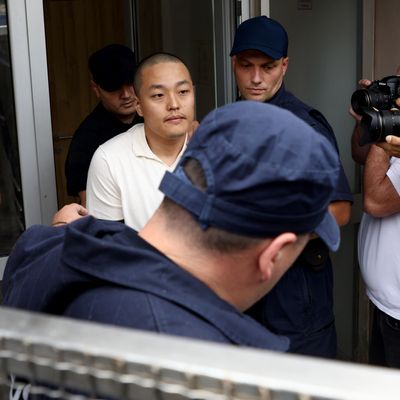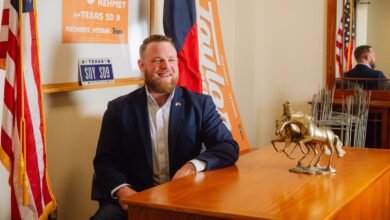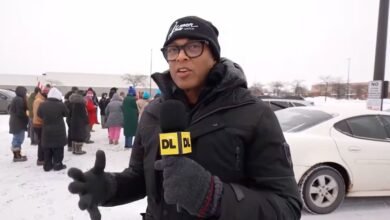

Photo: Filip Filipovic/Getty Images
Do Kwon was one of crypto’s biggest magical thinkers. His epoch-defining idea was Terraform Labs, a company that at one point commanded $60 billion in two related cryptocurrencies that would have made sense only during the anything-goes post-pandemic crypto bubble. One of the currencies, terraUSD, would always be worth a dollar — a stablecoin, the kind of digital currency that is part of the plumbing of the crypto market. The other, luna, fluctuated with that market. Unlike other currencies — like, say, the U.S. dollar — there was nothing backing either except the value of the other. He was also probably crypto’s biggest jerk — truly an incredible distinction — infamous for disparaging people for being “poor” and prone to delusions of replacing the entire world financial system with his cryptocurrencies.
The crash of terraUSD and luna last fall was inevitable in hindsight and set off a string of bankruptcies and unraveled some alleged frauds, including the hedge fund Three Arrows Capital and the lender Celsius, as well as a proven one: just about everything that touched Sam Bankman-Fried. Kwon went on the lam but was caught in Montenegro in March trying to board a plane with a fake passport. The question hanging over Kwon, a South Korean national, was whether he would get extradited to his home country or sent to the U.S., where he also faced criminal fraud charges.
Now, the mystery is over: Kwon is probably going to be sent to New York to answer for what he’s done, and it’s likely to happen soon. On Thursday, The Wall Street Journal reported that the judge overseeing the case has been telling people that he’ll send Kwon Stateside, even though no ruling has been made yet. (The judge is reportedly waiting for another court to rule on an appeal.) Should it happen, though, it would probably be the worse of the two options from Kwon’s perspective. Since the collapse of his crypto empire, he has done himself — and his defense lawyer — no favors by mouthing off on X and giving interviews to journalists. It’s like he was employing the Bankman-Fried playbook before Bankman-Fried ever did. “I was wrong, but that doesn’t make me a scammer,” he wrote almost exactly one year ago in a defense that is the same, in spirit, as the former FTX CEO gave online and in court. What’s worse for Kwon is that, should he get extradited to Manhattan, he will be tried on eight counts of fraud in the same court Bankman-Fried recently was and by the same team of prosecutors. (He also faces civil fraud charges from the Securities and Exchange Commission.)
Bankman-Fried’s case proved that having good intentions was never a good defense — at least not when there is tons of evidence against you showing that you committed fraud. But he also did himself no favors by being dismissive and contravening orders from the court. This kind of anti-authority swagger, which played well in cryptoland for so long, doesn’t do well in the court system. Even Chengpeng Zhao, SBF’s former counterpart at Binance — who had evaded U.S. authorities for years — pleaded guilty to allowing money laundering on his crypto exchange.
Although Kwon’s company was different from SBF’s or Zhao’s, his alleged crimes are still of the same variety: securities fraud, commodities fraud, manipulation. Like SBF, Kwon had essentially talked himself into crypto wealth and has apparently figured that he could talk himself out of being held accountable for his actions. Now, though, things look particularly bad for him. After he instigated an international manhunt, got caught with fake traveling papers, and taunted the authorities, prosecutors will arguably have an easier time painting him as an unsympathetic figure in an industry already prone to crime and fraud. And Kwon doesn’t even have Michael Lewis to fall back on to make him look good.




